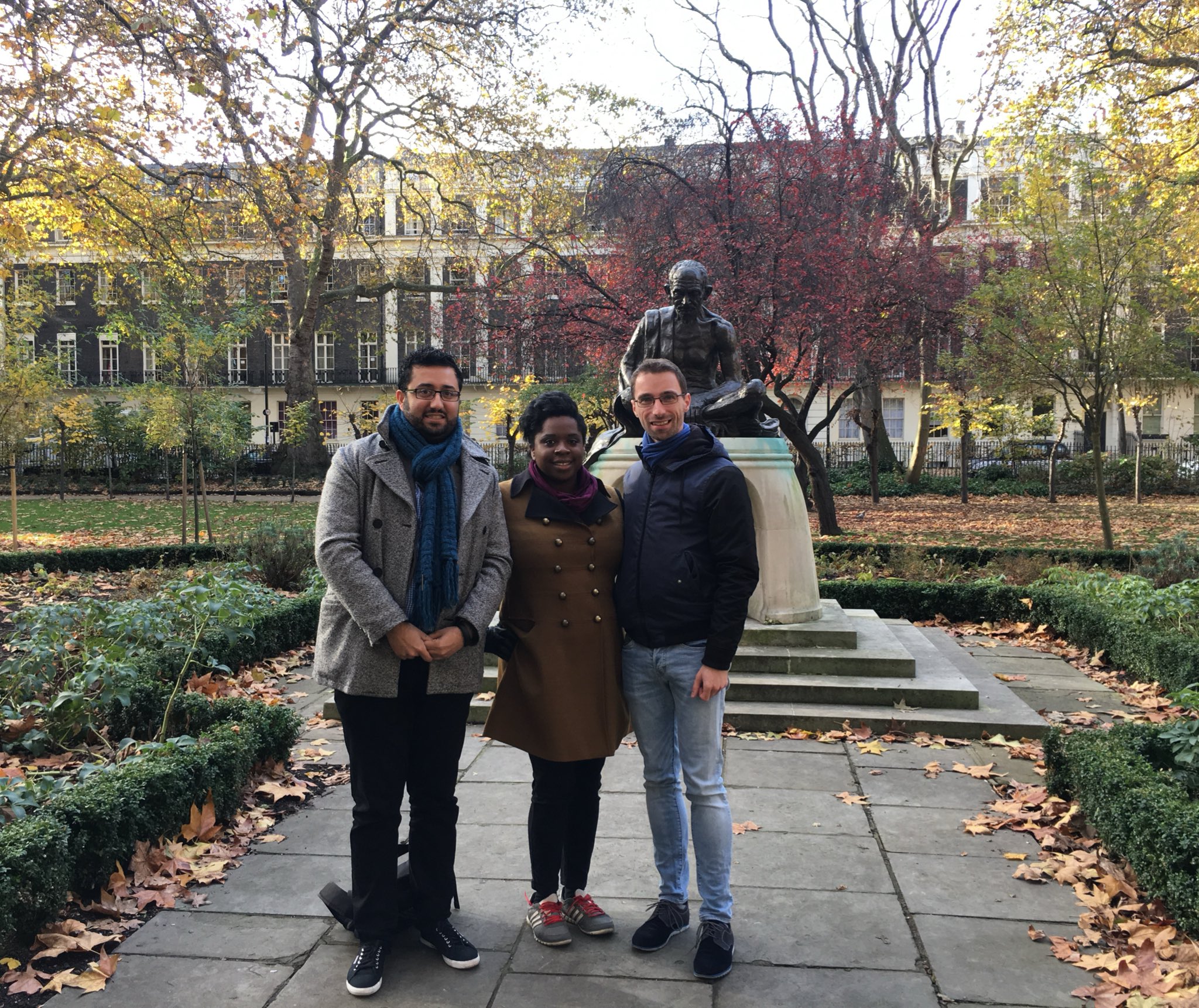‘Gandhi statue vandalism is an assault on the very values he stood for'
OPINION: Rishi Madlani writes about the response to the attack on the Gandhi statue in Tavistock Square
Thursday, 9th October 2025 — By Cllr Rishi Madlani

Rishi Madlani with Sabrina Francis and Adam Harrison in Tavistock Square
WHEN I arrived in Bloomsbury as a student nearly 25 years ago, I found myself living on the corner of Tavistock Square.
Amid the chaos of London, it became my sanctuary.
I would sit quietly on a bench, gather my thoughts, and look up at Gandhi – cross-legged, calm, as if reminding me that political leadership can take many forms and that peace is not a passive option.
It is strength, chosen deliberately, even in turbulent times.
That’s why the defacement of his statue with offensive graffiti has felt so painful.
It wasn’t just vandalism. It is an assault on the very values Gandhi stood for: non-violence, truth, tolerance, and the conviction that unity is stronger than division.
Tavistock Square has always been more than a patch of green. It is layered with meaning.
The Hiroshima cherry tree, recently replanted after its predecessor succumbed to a rare form of decay, stands as a living reminder that renewal can follow devastation.
The 7/7 memorial, also on the square, honours those who lost their lives in some of London’s darkest hours. The stone commemorating conscientious objectors tells us that courage can mean saying no to war. Every path and bench in this garden reminds us of the cost of hatred – and the human determination to resist it.
That is why Gandhi belongs here.
His satyagraha, or “truth-force,” was not a slogan but a philosophy of action. He showed the world that peace is not weakness, and that refusing to mirror hate is one of the most powerful acts of resistance.
So when graffiti tried to stain his likeness, the response mattered.
At Gandhi’s birthday anniversary last week the Indian High Commissioner paid tribute to Camden Council for working around the clock to restore the statue in time for the commemoration.
Alongside the Mayor of Camden, he modelled something sadly increasingly rare: moral leadership. Not outrage. Not escalation.
Calm.
They allowed Gandhi’s values –not the vandals’ hate – to define the moment. It was warming to see our local community attending in higher numbers, in solidarity after this horrible attack.
From the Indian YMCA to community leaders and campaigners – we saw the best of Bloomsbury coming together. That’s how hate is defeated: not by shouting louder, but by standing taller.
Tavistock Square has seen worse than graffiti. Bombings. Violence on its doorstep. Yet it endures.
The Hiroshima tree will blossom again. The 7/7 memorial continues to draw reflection.
And Gandhi still sits there in stillness, reminding us that anger may burn hot, but peace endures longer.
In a world that feels increasingly hostile and divided, Tavistock Square is not just a park – it is a teacher. It asks us to consider how we answer provocation: with fury, or with dignity.
Hate leaves scars. Unity leaves legacies.
I hope future generations – students, Londoners, visitors from around the world – will continue to find what I first found here: peace, contemplation, and the conviction that there are always peaceful solutions, if we choose to pursue them.
Because unity over hate is not just a principle carved in stone or cast in bronze.
It is a choice we must keep making, every single day.
. Rishi Madlani is a Labour ward councillor for Bloomsbury